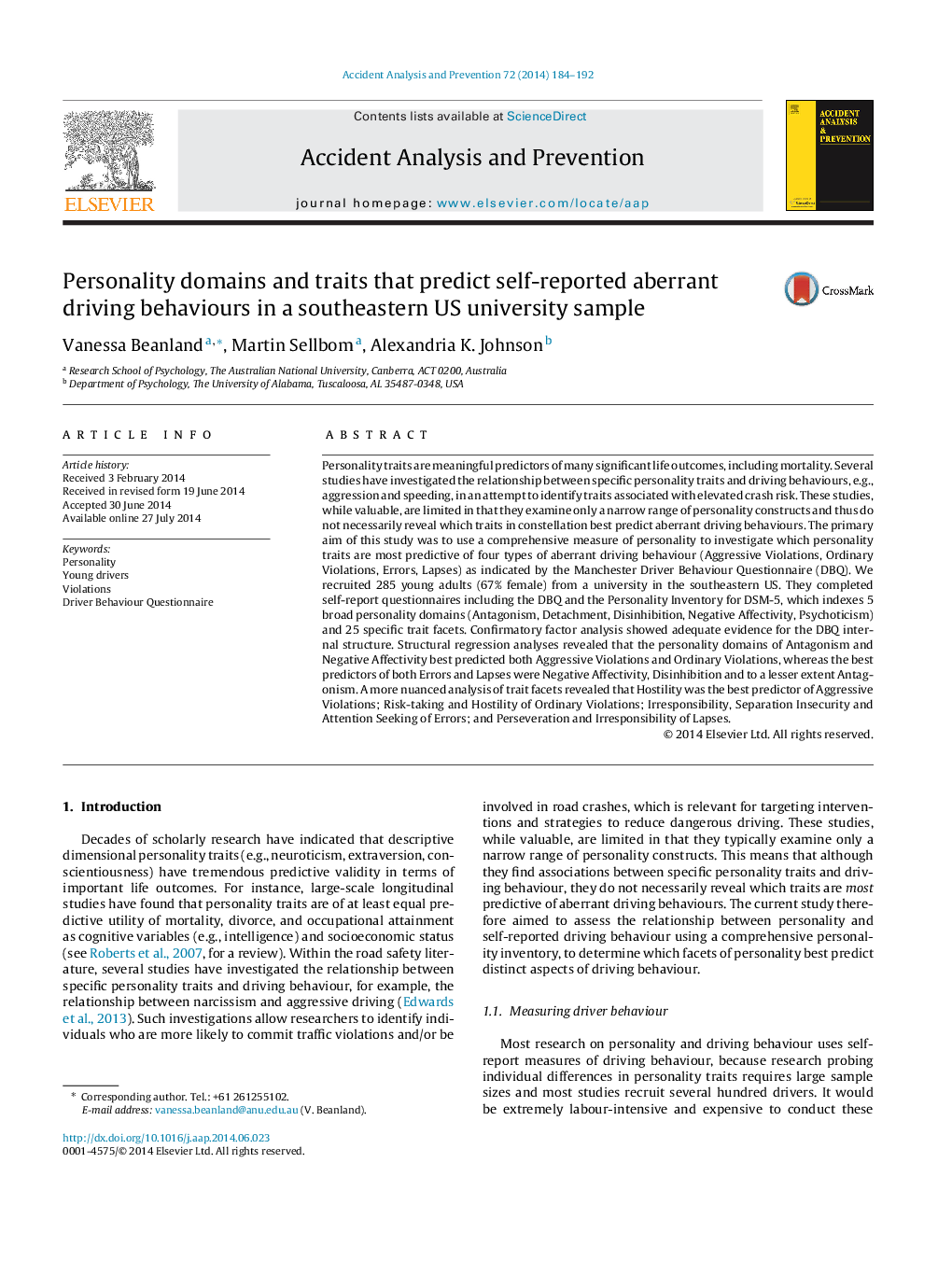| Article ID | Journal | Published Year | Pages | File Type |
|---|---|---|---|---|
| 572264 | Accident Analysis & Prevention | 2014 | 9 Pages |
•Examined relationship between personality and Driver Behaviour Questionnaire (DBQ).•Comprehensively measured personality using Personality Inventory for DSM-5 (PID-5).•Errors and Lapses predicted by Negative Affectivity, Disinhibition personality domains.•Aggressive and Ordinary Violations predicted by Antagonism, Negative Affectivity.•Analysis of trait facets provides more nuanced view of personality-driving relationship.
Personality traits are meaningful predictors of many significant life outcomes, including mortality. Several studies have investigated the relationship between specific personality traits and driving behaviours, e.g., aggression and speeding, in an attempt to identify traits associated with elevated crash risk. These studies, while valuable, are limited in that they examine only a narrow range of personality constructs and thus do not necessarily reveal which traits in constellation best predict aberrant driving behaviours. The primary aim of this study was to use a comprehensive measure of personality to investigate which personality traits are most predictive of four types of aberrant driving behaviour (Aggressive Violations, Ordinary Violations, Errors, Lapses) as indicated by the Manchester Driver Behaviour Questionnaire (DBQ). We recruited 285 young adults (67% female) from a university in the southeastern US. They completed self-report questionnaires including the DBQ and the Personality Inventory for DSM-5, which indexes 5 broad personality domains (Antagonism, Detachment, Disinhibition, Negative Affectivity, Psychoticism) and 25 specific trait facets. Confirmatory factor analysis showed adequate evidence for the DBQ internal structure. Structural regression analyses revealed that the personality domains of Antagonism and Negative Affectivity best predicted both Aggressive Violations and Ordinary Violations, whereas the best predictors of both Errors and Lapses were Negative Affectivity, Disinhibition and to a lesser extent Antagonism. A more nuanced analysis of trait facets revealed that Hostility was the best predictor of Aggressive Violations; Risk-taking and Hostility of Ordinary Violations; Irresponsibility, Separation Insecurity and Attention Seeking of Errors; and Perseveration and Irresponsibility of Lapses.
